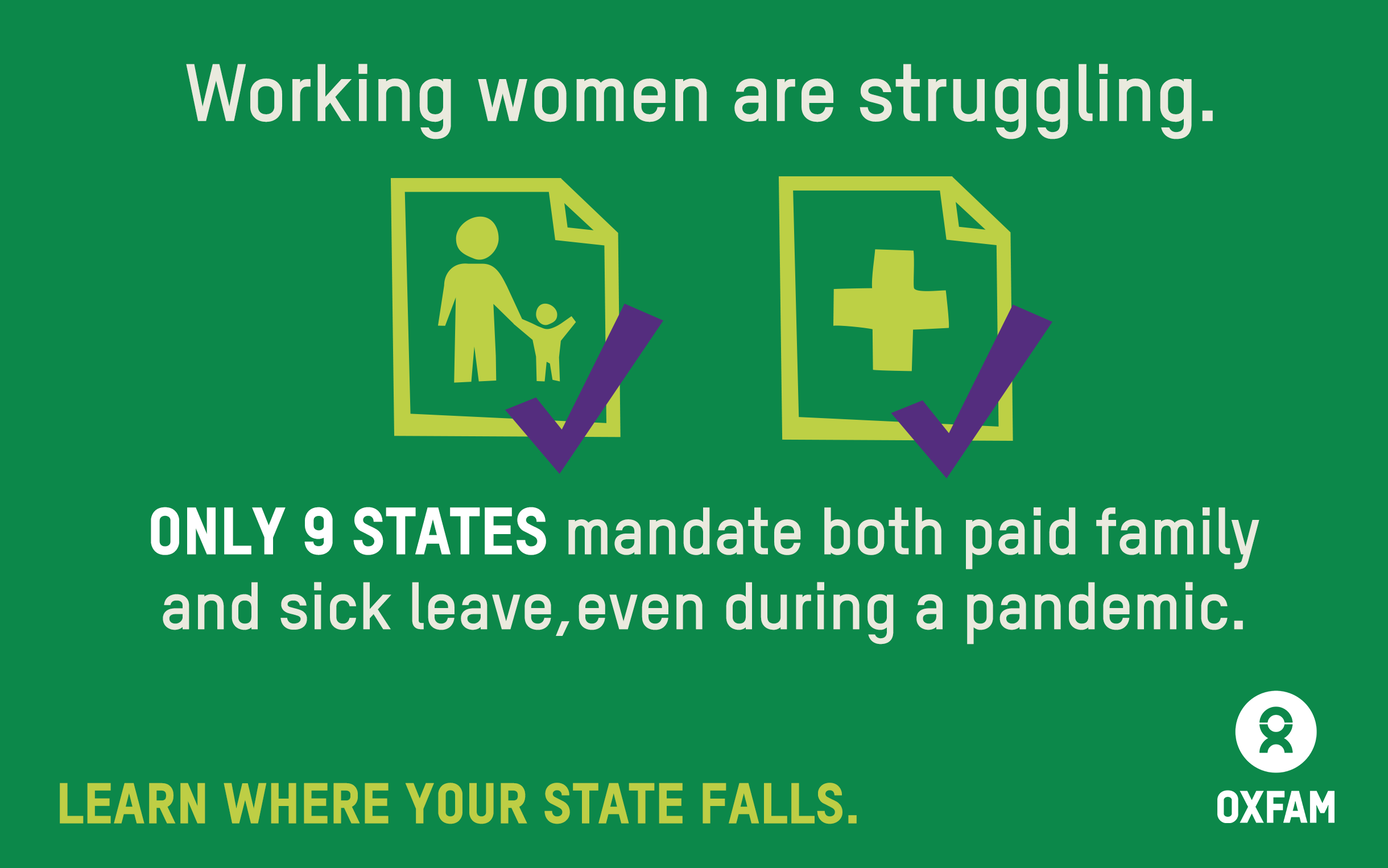Oxfam ranks the states on how they are supporting working families in 2021.
Since 2018 Oxfam has released an annual Best States to Work Index that assesses the state-by-state conditions for workers around the country. With COVID-19 continuing to threaten the health and livelihoods of working families—and women bearing the brunt—it is more important than ever to highlight the needs our nation’s workers.
This year Oxfam is releasing two indexes—Best and Worst States to Work in America and Best and Worst States for Working Women. Both indexes focus on three areas: wage policies—to what degree states are mandating fair minimum wages for their workers; worker protections—whether states are taking proactive measures to treat workers with dignity and establish safe conditions; and rights to organize—are workers free and able to form and join unions.
Best States to Work
The top four best states to work have some important things in common—robust minimum wages, substantial worker protections, and support for workers organizing.
Oregon
Oregon is ranked the number one best state to work in the nation. It leads the US with policies aimed to improve conditions in the workplace and provide the right to organize. It has jumped up from its fifth-place ranking from last year, in part because of the inclusion of unemployment benefits this year.
New York
New York has some of the best protections for workers’ rights to organize in the country, including providing collective bargaining and wage negotiation for teachers.
Massachusetts
Massachusetts is highly ranked in part because it has one of the highest minimum wages in the country—$13.50.
California
California is tied with Oregon, New York, and DC for having the best support for worker organizing.

Worst States to Work
It’s no surprise that the four worst states to work are also the worst for working women. Among other things, these four states do not provide any protections for sexual harassment in the workplace.
North Carolina
North Carolina has repeated its 2020 ranking of last place. The state provides no support for workers’ rights to organize, does not exceed the federal minimum wage, and has very few worker protection policies.
Georgia
Along with its bottom four counterparts, Georgia offers a tipped minimum wage of only $2.13.
Mississippi
Mississippi is the only state in the country without an equal pay mandate.
Alabama
Alabama provides no accommodations for workers who are pregnant or breastfeeding.

It is abundantly clear—workers in the US face dramatically different conditions simply because of where they live.



